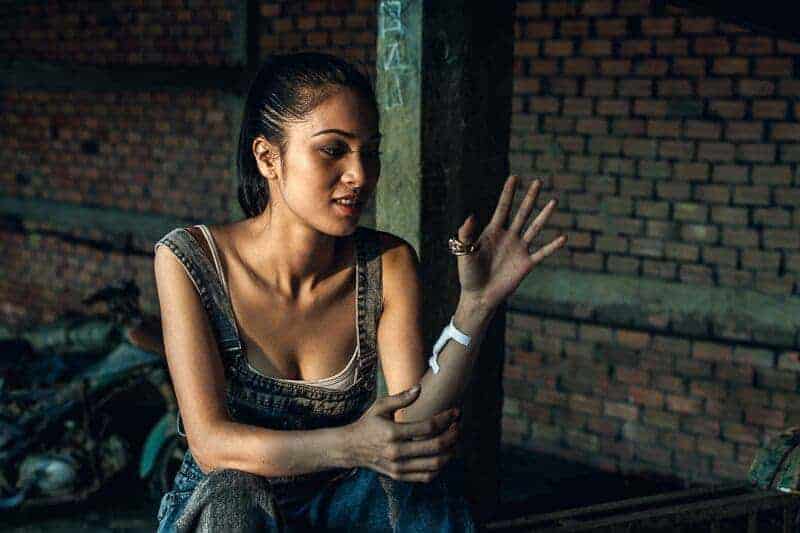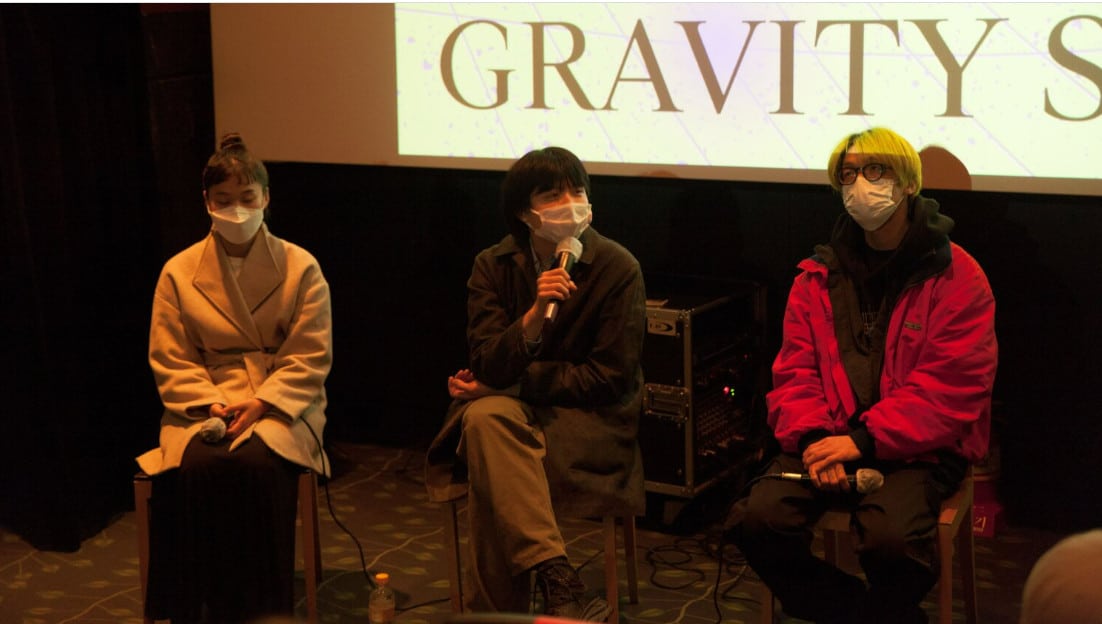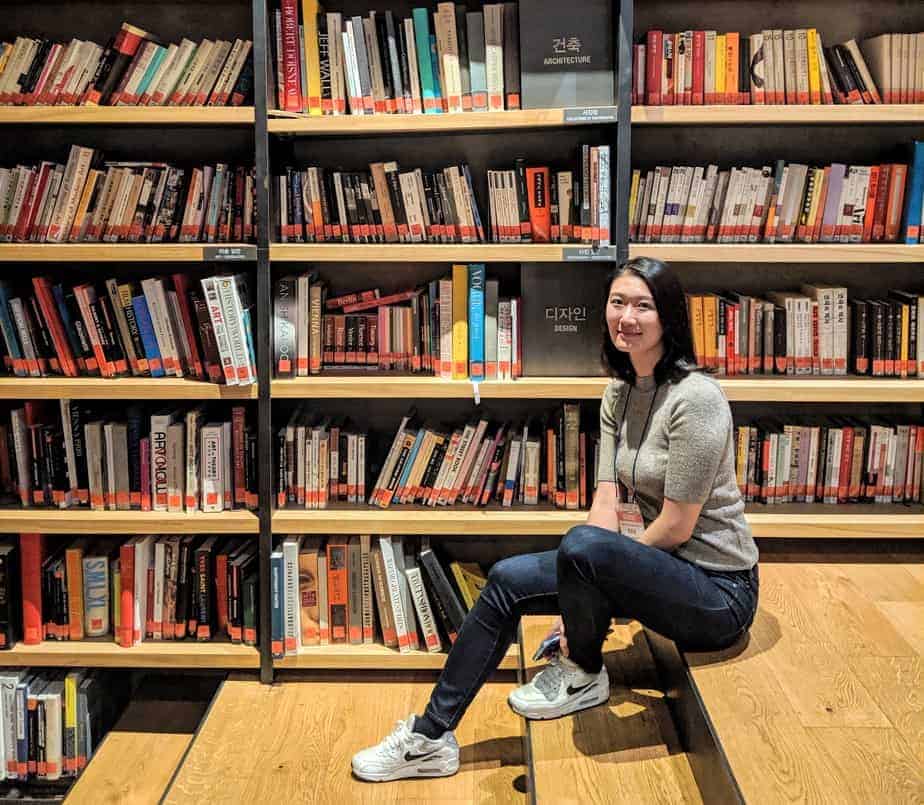Arden Rod Condez hails from Pandan, Antique, Philippines. He has been a writer of ABS-CBN Corporation, the largest media conglomerate in the Philippines, for almost 15 years. He is a graduate of the University of the Philippines in the Visayas with a degree in Broadcast Communication. He also took a second major in literature, specializing on the literature of Western Visayas in the Philippines, where Mr. Condez comes from. “John Denver Trending”, multi-awarded at Cinemalaya and selected in Korea's Busan International Film Festival in New Currents' section, is Mr. Condez's directorial debut.
On the occasion of the film screening at FICA Vesoul, where it won three awards (Jury prize, Film Critics and Audience Award for a Fiction Film), we speak with him about the role social media play in the Philippines, bullying culture in schools, getting around law enforcement, the need to promote regional language films in his home country, and many other topics.

You have studied broadcast communication, and then literature. But how did you end up in filmmaking?
My broadcasting major brought me to television, but then when I started applying for television I ended up doing dramas instead of news; I fell in love with it easily because of my background in literature, so yeah, ever since I was a kid I was interested in hearing and telling stories. When I was in college, I studied broadcasting but then I also studied literature, and that made me fall in love with stories and of course for me film is the most important medium in telling stories in the Philippines.
Tell me a bit about the school that the film takes place
It was my high school, I studied there in high school so it was easy for me to get the location. What I did was I told them that I am intending to shoot in the school but the thing is I don't have the money to pay for the kids. What they offered me was they would allow me to use the school and to get the kids to play in the film as long as after the movie was finished, I would have screenings there and all the fees would be given to them. And so, they asked the parents of the kids if it is okay with them, they gave their permission and in January last year we shot the film there, and we had 600 kids starring in it for free!
Is the the woman who plays the principal in the film an actress?
The principal in the film is the actually principal of the school but she is also my aunt.
And the other kids, like the one who accuses the protagonists all the time?
The other kids were students of that school. One morning I went to their flag ceremony in the morning and some of the kids went to my audition.
And what was the inspiration behind the story?
The inspiration behind this film was a piece of radio news that I heard in 2017 about this mother who went home after working at the farm and found out a tragic event that happened to her son; and then – I'm not spoiling the film – in the actual story the mother didn't know why the kid would commit such a tragic action because he was seemingly a happy child, he had good grades in school, he performed well in the house, he was a good son. It was not until they went to the police station to get the death certificate of the boy's body for a requirement of the embalming of the body, that they found out that earlier that morning, the boy was sent by his own teacher to the police station, because he was accused – apparently in social media – for four days of stealing an iPad.
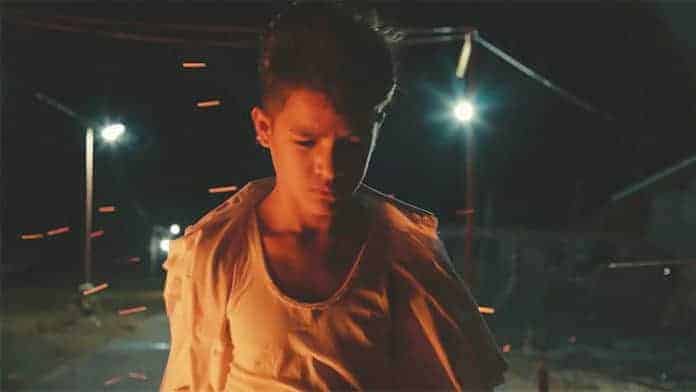
Ah really, so it was a true story?
Yeah, and that really bothered me, because at that time also President Duterte had just won, social media had helped him a lot in his victory, and people started to post fake news in the internet; then I heard that story and it made me realise that, y'know, everything we post on social networks is actually very personal to some people. That is why we have to be reminded of that.
Okay. But why did you choose not to show who stole the iPad?
It was originally in my script and we shot the scene revealing who stole the iPad but then, during the editing, I realised it was more of a statement if we did not reveal the truth in the end, because during that time, people had already decided what was true, and at that point in the boy's life and in the lives of the people around him truth was already material, so what's the point of showing the public the truth? As the audience, we already know that he really did not steal the iPad.
The film also deals with bullying. Is that an issue in Filipino schools nowadays?
Yeah it is a very pressing issue. Actually, right now schools are very much aggressive in their campaign on bullying, especially cyber bullying, because there are a lot of suicide cases in the Philippines; the number is growing already because kids and teenagers are committing suicide at school or even in their houses – in their homes – and so it is a very pressing issue. When we had screenings in schools and other venues, we usually had talkbacks and Q&As after screenings and then kids and parents would speak up and tell their stories of how they were bullied and how their kids were bullied in school; it's kinda heart-breaking but you know, because of this film all these stories came out and then I realised there are a lot of stories of bullying that need to be told.
What do you think are the roots of bullying, why does it occur in schools so much?
At first, for me, kids really don't know the gravity or extent of their actions. Most of the time they are not thoughtful of their words or even their actions, they don't realise they can hurt people. So for me the film is a reminder, a cautionary tale, for these kids and even the adults that what you do to other people is personal to them.
And the role of social media?
It's quite interesting in the case of the Philippines because as a culture we are not very frank, we don't confront each other. So, if we have issues with each other, most likely we don't go directly to the person involved, we usually go to the neighbour and talk about the person. When social media appeared in the Philippines they became another platform to gossip and talk about people because it is always easier for us to talk about other people when we are not in front of them, so it became even easier for us to gossip; for me it became worse: I always say that the Philippines as a culture is not prepared for social media because we don't realise its power not just to create, but to destroy lives.
The protagonist – John Denver – is also kind of a bully himself. Why did you choose to portray him like this?
Because I wanted to paint him as a regular kid that does make mistakes and I don't want to see him as clean and innocent and pure – I want him to be a regular boy just to convey the idea that this story could happen to anybody, even if you are good or bad, this story could happen to you.
What about his name, John Denver, he's a singer right?
Yeah he was named after the singer, because in my hometown and even in some places in the Philippines, kids are named after favourite singers, favourite actors. Even I have my father's name but my father's name was taken from a bottle of a perfume – Elizabeth Arden! Arden is from the perfume. And my cousin's name is Dior! So we usually get our names out of foreign celebrities and even foreign brands.
So do you think the bullying and the way the social media unfolds in the film is also the fault of the parents?
Yeah, that's why I involved the community, because it is my belief that this story is not just a story the youth should watch but also for the parents to see what's going on in school and at the same time to make them realise what is their role; also, I touched on several aspects of the community like the church, the school, the police, and even the government, because for me a viral video is not dangerous by itself but a viral video becomes dangerous when institutions that decide the fate of kids believe these viral videos are true. For me that makes it dangerous.
Why did you choose not to have any fathers in this film?
I grew up without a father, this is not a very peculiar or unique case for me; most of the time in my hometown we don't have any complete families, because, most likely, one of the parents works abroad or somewhere else. There's always a single parent that manages okay but they're far from their fathers – there's always one single parent who does all the work at home.
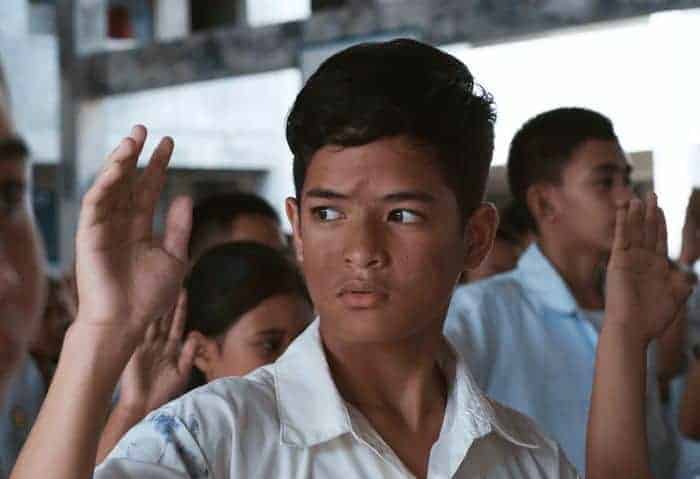
Okay. Can you tell me a bit the scene where John Denver beats the other boy, was that difficult to shoot?
Oh yes, it was difficult because you cannot control kids, if they become aggressive then they become aggressive, so we really had to control these actors and remind them that this is an imitation because they might really hurt each other, so I was really tense. It was actually the most tense scene that I ever shot in the film because we really shot it on the third floor of a building, and of course, we secured its safety but then, still something could really happen if you cannot control the kids.
I thought that the scene with the mayor and the two mothers was also really tense. Can you tell me a bit about this scene?
Most of the time that's how we solve issues in our place, when the mayor cannot resolve a case like this, just to shut up or to appease everybody he would usually give money to the people involved just for them to calm down and “let's have peace and harmony in this town”. However, the thing is he does not resolve the issue, he just wants to let it go.
The scene with the policeman in the end, is that realistic, like do the police go that far, he puts the gun in front of the boy…
That for me is the representation of what really happened in real life, the inspiration for this story, because what triggered the boy was when he learned the police were planning an entrapment operation. To get the iPad from him, the policeman would pretend he would be interested in buying the iPad and then the boy he would be trapped. Actually, until now, we don't know if he really stole the iPad but then the magnitude of that event really affected the boy, and that for me triggered his death. And so I conveyed that experience in the film and showed it with a confrontation with the boy and the policeman; it was really a tense moment. When we shot the film, the national police of the Philippines were very strict in allowing films and even television shows to show police scenes because they feel like they already had a bad reputation because of what's going on in the Philippines with the war on drugs. Therefore, we all endured getting approval from the town police up to the provincial police and then the regional police and the national police, just for them to get the approval.
You have to get approval from everybody?
Yeah, and to tell you honestly, they didn't know exactly what would transpire in that scene, because what we did was we built a separate room inside the police station and the officers there did not know what was going on inside that room, and so we shot the scene in there.
Ah you tricked them!
And when the chief of police saw it, well, he couldn't say anything anymore because it became popular!
How is the situation with the police in general in the area?
Well, in my town the policemen are very friendly , they are actually good. But then of course in some other places I cannot say the same thing. Because the president gave them so much power and so much money that they feel like they can abuse it.
And the films shows a bit about various superstitions, is this a central element in Filipino society?
It is particularly important in my hometown, which is believed to be the first Malay settlement in the Philippines. We have preserved some pre-Hispanic traditions, and when the Spaniards came in our country, those pagan practices, Christian practices, Catholic practices were merged, so even if a shaman performed rituals we would call God and all the saints, even if it's not really recognised by the Catholic church. When someone like me mentions the name of my area, in Manila they would always ask if it's true that there are witches in my place, and so it has sort of created a bad reputation about our hometown. And for me, even if it's not true, it has already affected the reputation of my hometown and I think that it's in a way in parallel with what's going on with John Denver's life, he had a bad reputation because of a lie. So for me it's the parallel between the traditional witch-hunting that happens in my hometown the witch-hunting that happens in social media.
Okay, and what about the guy who speaks on the media saying, “I saw him selling the iPad”.
Ah yes, it is usually the case in the Philippines because when an issue gets big on social media, some people have this tendency to give their input even if it's not true as long as they will be involved in the story. So I did that particular scene to replicate what is really going on in real life, because most of the time people will pitch in their input in a story…
And so the real story, the actual story the film is based on, what did the mother do after, she sued?
I haven't checked what's going on in the case right now, but right after the death of the boy, a case was filed against a teacher, the school was questioned, and human rights groups helped the mother file the case; yeah it became big but the funny thing is right after the death the investigation focused on if he did or did not get the iPad.
Can you tell me a bit more about the location the film was shot?
It's 45 minutes away by plane from Manila, right in the middle of the Philippines, it's called Panay Island. It's near a famous beach in the Philippines called Boracay. So our hometown is practically a coastal town, it's like where the mountain meets the sea.

What is your opinion about the Filipino film industry at the moment?
Aspiring filmmakers are very much aggressive, everybody is shooting films right now. But the thing is, we may grow as filmmakers but the audience is not growing with us, because most of our audiences still prefer comedy and romantic comedies and horror, not drama. There's only a very niche, small population that is interested in independent films, but then this small population is very aggressive and very vocal in promoting and watching these independent films and actually they've made independent films survive; we make a lot of films every year, and most of them don't get regular distribution. It's still way cheaper to make films in the Philippines compared to our South East Asian neighbours, because in the Philippines when you declare you're doing an independent film, meaning you don't get money from big production companies, film crews will automatically give you discounts, and some companies that do camera rentals for examole, usually provide cameras for free. For a first time filmmaker it will always be easier to do your first film.
But in general the audience goes to local films, to watch Filipino films, or more say Hollywood films, what do they prefer?
They would prefer romantic comedies and yep, Marvel films.
Are you working on anything new, you have any new projects?
I'm trying to work on the story I told you about my hometown. Apparently there's this illness that can only be found on my island. There were cases of this illness in the United States, but, for example one man who grew up in the States and had this illness, he discovered his roots were in my island. Apparently, he is not the only one, there are a lot of people who discovered the same thing. Hopefully, this will be my next film.
“John Denver Trending” screened in the Philippines?
Yes, during Cinemalaya, and after the festival we had a three week extension in cinemas; it was a surprise for me because the film is not in the national language, and the mother is the only famous actor in the film. But then, we were no. 1 in terms of box office results in Cinemalaya, and that is why we extended our run in theaters; the run was okay, it was good, it was really surprising. For me, I guess the next few years of independent cinema in the Philippines won't focus only on films made in Manila, but films that are in regional languages like “Cleaners“.
How did the audience receive the film?
They were very receptive. They were very fond, most especially of the boy, but also of the message of the story. We got lots of good feedback and people recognised its importance, of course they recognised the heaviness of the ending! But you know, people understand!
Ticket sales were good?
Yes, my producers are happy! In a matter of, I guess, a month we already recuperated the money we spent, because we had several screenings, right after the theatrical run we had several screenings in schools, most especially in the province, and there was this one time, 3,000 kids showed up just in one day. We reduced the price, the regular price in the Philippines is really high but then when we do screenings in schools we reduce the price.

And what do the kids feel when they see this film?
That's why I really want screenings in schools, because we require talkbacks right after, just for them to share their thoughts about the film. It's really quite painful to see some of them cry, not because of the story but because they've had similar experiences. We usually secure the presence of a psychiatrist or a psychologist and even guidance counsellors of the school at every screening, so that's a must. That's why we refused another commercial run after the Cinemalaya extension, because for me, you cannot control people in regular cinemas and you cannot just go to all these cinemas to have talkbacks. I think this is also another way for independent films in the Philippines to go, I think we should not only focus on screenings in theaters but screenings in smaller venues that make the viewing with the people more intimate, and more personal. For me it is highly important to build a relationship between the audience and independent cinema, because releasing it in commercial theaters is somehow a very cold approach.
Last question, do you think cinema can really change the world?
I like to believe that! For me, most especially in developing countries like the Philippines, I believe that for us this is not just an expression of my art, cinema is part of nation-building. People always go to the cinema to have fun, but for me it can also be a tool for them to realise the truth and to realise what's going on in society. For me, cinema is an essential part of nation-building.



